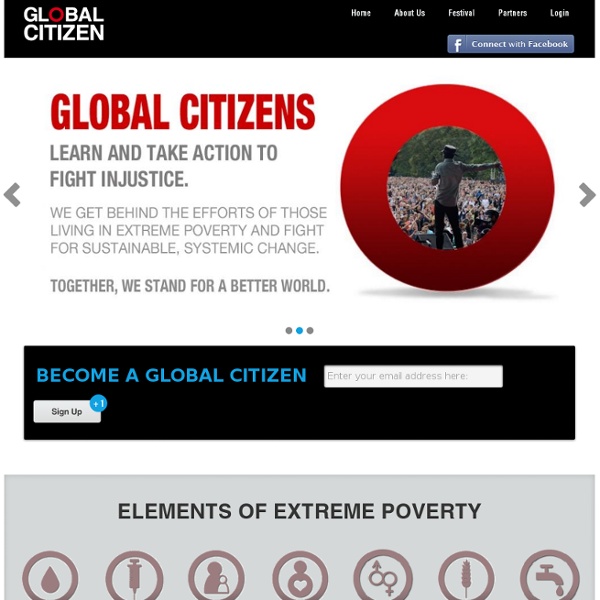



See Through Fashion Why Bangladesh? In April, Bangladesh suffered what is being called its "most deadly factory collapse in its history." The Rana Plaza disaster killed over 1100 men and women and injured thousands more. The ready-to-use-and-abuse garment industry in Bangladesh makes up a whopping 80% Bangladesh's exports. Bangladesh garment workers are the worst paid in the world. Bangladesh garment workers make a considerable amount of clothing for British retailers, many of whom were directly or indirectly linked to the factory collapse. Impact The textile industry is the largest employer in Bangladesh. A recent doubling of Bangladeshi wages has lifted many to the cusp of the extreme poverty line. These workers deserve and need our support. Safe Conditions Our want for fashion should not come at the price of others. Transparency The fashion industry operates without any transparency whatsoever - it almost impossible for a consumer to know how their clothes are made and in what conditions. Decent Pay
About Us | Girls Who Code “This is more than just a program. It’s a movement.” —Reshma Saujani, Founder, Girls Who Code Executive Team Reshma Saujani, Founder & CEO Reshma Saujani is the founder and CEO of Girls Who Code and the former Deputy Public Advocate of New York City. Staff Carolina Huaranca National Clubs Director Casi Schwisow Seattle Program Manager Charellitta Lewis Office Manager Dana Ledyard Managing Director Elizabeth Caudle NYC Program Manager Sara Sadek Bay Area Program Manager Nancy Bright Midwest Regional Director Natalie Bonifede West Coast Regional Director Ashley Gavin Curriculum Director Florence Noel Northeast Regional Director Charlotte Stone Communications and Marketing Director Liza Conrad Development and Operations Manager Board of Directors Reshma Saujani Founder & CEO, Chair of Board Evan Korth Professor, Computer Science, NYU Co-Founder, hackNY Alexis Maybank Founder and Chief Strategy Officer, Gilt Groupe Adam Messinger Chief Technology Officer, Twitter Trina DasGupta CEO, Single Palm Tree Productions Hope Taitz
my youth Sophie Mather Concentrating on product and people in a sustainable world. Sustainable innovation focusing on the aspects of commercializing sustainable product. Inspiration and communication focusing on the people and teams that will make this happen. Sustainable Innovation - it's all about commercial sustainable product. Inspiration & Communication – about inspiring people to make a difference. I like to call this toe dipping. With the inspiration and information gained from workshops, tools and presentations, your teams ideas, can be given life through facilitated discussion and brainstorming. Workshops to inspire, engaging your teams to think differently. With a fresh set of eyes, a more strategic view of your company's 'bigger picture' can be formulated. As part of the sustainability journey, evaluation is key to assessing where things have been successful or need to be changed in order to strengthen and move forwards. Presentations and training tools, home-in on areas for in-depth training.
United Way Ancient Egypt and The Alternative Story of Mankind's Origins (Full Documentary) Facts and Figures about clothes collections | Clothes Aid Environmental facts The energy required to collect, process and sell a reused item of clothing is only 2 per cent of the energy required to manufacture a new garment. 1 The clothing and textile sector in the UK is responsible for more than 3 million tonnes of CO2 emissions. 1 Annually the UK consumes 2.16 million tonnes of clothing and textile products and spends approximately £38.4 billion on clothing. 2 Of the textiles that are discarded to the householder waste bin, nationally 43% is reusable. 2 Approximately 1.5 to 2 million tonnes of clothing and textile waste is generated in the UK each year, of which 1.2 million tonnes (63%) is currently disposed of to landfill. 2 2 million tonnes of textile waste (inc. clothing, carpets and footwear) is generated annually (of which approx 1 million is clothing). 2 24% (523k tonnes) is collected for reuse and recycling in the UK and overseas. 2 1. Bogus clothes collections 1.
The Difference between Aliens, Demons and Fallen Angels The Difference Between Fallen Angels, Demons, Aliens, Jedi, and the Watchers By Sherry Shriner In these last days, the Bible says it will be a time of mass hybridization and the mixture and corruption of human DNA by fallen angels, also known as "Aliens." The government is and has been, conditioning the existence of aliens through Hollywood, science fiction, cartoons, and other sources. These Aliens are not ascended masters, or enlightened ones, or beings from galaxies millions of miles away, nor are they our forefathers or original creators. The Lord has told me that in the coming days, these Aliens will make their presence more visibly and physically known on earth. As the end times approach, the lies of extra terrestrial lineage, heritage, and creation will come out in full force. Two Separate Rebellions in the Early Days Most people are familiar with the rebellion of Satan wanting to be like God and wanting to be worshipped as God. In Enoch Chapter 6:1 it says.. 3 and beget us children.'
About | Fashioning Change ® - Do Good Fashion Share Your invites were sent. Thanks so much for sharing! to multiply your impact. Give friends $10 off their first purchase - and you will get $10 after it ships! Fashioning Change is an online marketplace for stylish, money saving, nontoxic, and sweatshop free apparel and accessories. It’s our mission to create access to brands and products that are fashionable, that are proud to share every detail in their supply-chain, and that use your purchase to protect health, protect the Earth, protect human rights, and to give back in another way. We’re all about good style, good vibes, and good living.